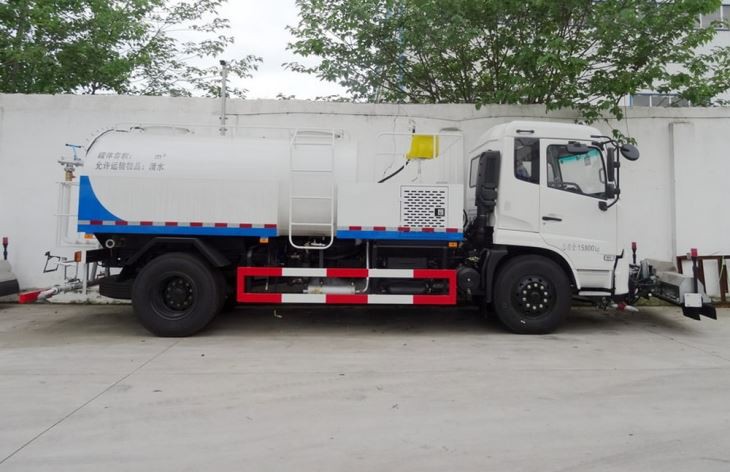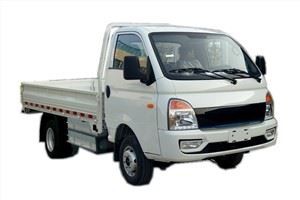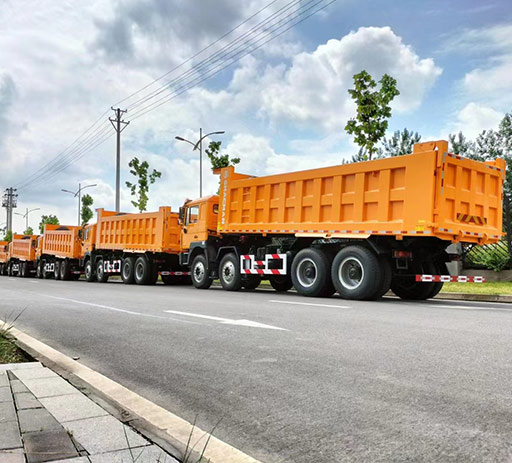A Comprehensive Guide to Trash Trucks: Everything You Need to Know

Trash trucks play a vital role in waste management, serving as essential vehicles for the collection and transportation of refuse. In this article, we will delve into the world of trash trucks, exploring their types, functions, benefits, and impact on our communities. Whether you’re curious about how they operate, the technology behind them, or tips for maintaining cleanliness around them, this guide has you covered.
Understanding the Basics of Trash Trucks
What is a Trash Truck?

A trash truck, also known as a garbage truck, is a specialized vehicle designed for collecting and transporting municipal solid waste. These trucks come in various designs and sizes, depending on the capacity needed for different types of waste collection.
The History of Trash Trucks
The evolution of trash trucks can be traced back to the early 19th century when horse-drawn carts were commonly used to collect waste. The introduction of motorized vehicles in the early 20th century revolutionized waste management, leading to the first motorized garbage trucks being deployed in 1915. Over the decades, technological advancements have considerably improved the efficiency and effectiveness of these essential vehicles.
Types of Trash Trucks
Standard Garbage Trucks
Standard garbage trucks are the most commonly seen vehicles, featuring a rear-loading design. Waste collectors load trash bags and bins manually into the back of the truck. These trucks typically have a compacting mechanism to reduce the volume of waste collected.
Front-Loader Trucks
Front-loader trucks are used primarily for commercial waste collection. These vehicles are equipped with hydraulic arms to lift and dump large bins into the truck’s front compartment. This type allows for a more efficient collection process in urban areas where space may be limited.
Side-Loader Trucks
Side-loader trucks are designed for collecting waste with minimal manual handling. They have a mechanical arm on the side, allowing for easy pickup of bins without the need for a collector to leave the vehicle. This enhances safety and efficiency.
Roll-Off Trucks
Roll-off trucks are specialized vehicles commonly used for larger waste disposal needs, such as construction debris or industrial waste. These trucks transport large containers that can be rolled off the back onto a site for filling, before being picked up again when full.
Vacuum Trucks
Vacuum trucks are used for collecting liquid waste and non-hazardous materials. Equipped with a powerful vacuum system, these trucks can effectively absorb and transport waste from oil spills, sewage, or other waste scenarios.

How Trash Trucks Work
The Collection Process
The collection process begins with waste placement. Residents are usually required to place their waste in bins or bags at designated locations. Trash trucks operate on a set schedule, differentiating between residential, commercial, and industrial routes.
Loading Mechanisms
Different types of trash trucks have various loading mechanisms. For instance, rear-loaders use manual labor to pick up waste, while front-loaders utilize hydraulic systems to lift large bins. This efficiency is crucial for maintaining timely collection and preventing overflow of waste in public spaces.
Compaction
Most garbage trucks are equipped with compactors that compress waste to maximize load capacity. Compacting reduces the number of trips required to dispose of waste, decreasing fuel consumption and lowering operational costs.
The Importance of Trash Trucks in Waste Management
Environmental Impact
Trash trucks play a crucial role in environmental preservation by ensuring that waste is collected efficiently and disposed of properly. Proper waste management helps prevent pollution and reduces the risk of disease by eliminating breeding grounds for pests.
Community Cleanliness
Regular trash collection helps maintain community cleanliness and hygiene. People tend to feel more positive and unified in well-maintained environments, enhancing their overall quality of life.
Recycling and Resource Recovery
Many trash trucks are designed to separate recyclables from waste. Increasing the efficiency of recycling helps divert materials from landfills, conserving natural resources and minimizing environmental impact.
Modern Technologies in Trash Trucks
GPS Tracking
Many modern trash trucks are equipped with GPS tracking systems. This technology allows waste management companies to monitor fleet movements and optimize collection routes for efficiency, reducing fuel consumption and emissions.
Automated Collection Systems
Automated collection systems utilize robotics to streamline the waste collection process. These systems enhance safety and reduce the risk of injury for waste collectors while speeding up the collection process.
Smart Waste Bins
Smart waste bins equipped with sensors can alert waste management agencies when they are nearing capacity. This allows for more efficient collection operations, ensuring that bins are emptied before overflowing.
Practical Tips for Residents
Proper Waste Disposal

Residents should familiarize themselves with local waste disposal regulations. Segregating recyclables from waste, using appropriate bins, and ensuring proper bagging of trash can significantly enhance the efficacy of waste collection.
Safe Disposal of Hazardous Waste
Many communities have special disposal days or locations for hazardous waste, such as batteries and chemicals. Always follow local guidelines to ensure safe disposal and prevent harm to the environment and community.
Community Engagement
Introducing community clean-up activities can foster unity and awareness regarding waste management. Such programs can encourage residents to take responsibility for their environment and appreciate the value of trash trucks and waste collectors.
Maintaining Cleanliness Around Trash Trucks
Keeping the Area Clean
It’s essential to keep the surroundings clean where trash trucks operate. Ensuring no litter is on the ground can prevent accidental spills and potential hazards for both residents and waste collectors.
Avoiding Contamination
Be mindful of what you place in your trash. Avoid disposing of non-biodegradable items in regular bins to reduce contamination and facilitate more efficient recycling practices.
The Future of Trash Trucks
Electric and Hybrid Options
The industry is seeing a transition towards electric and hybrid trash trucks. These vehicles are more environmentally friendly and can help reduce greenhouse gas emissions associated with traditional diesel-powered trucks.
Advanced Recycling Technologies
A push for advanced recycling technologies may lead to trash trucks incorporating more sophisticated mechanisms for material recovery. Innovations in sorting and material identification can revolutionize how waste is processed.
Integration of AI
Integrating artificial intelligence into trash collection routes and schedules can lead to greater efficiencies, minimizing operational costs and time spent on collection.
Frequently Asked Questions (FAQs)
What should I do if my trash was not collected?
If your trash was not collected, check your local waste management schedule. If you find your trash was missed, contact your waste management company to report the issue.
How can I prepare my trash for collection?
Use sturdy trash bags, properly seal waste, and place recyclables in designated containers. Avoid overfilling bins to ensure collection crews can easily lift them.
Are there any items that cannot be disposed of in regular trash?
Yes, hazardous materials like paints, chemicals, and batteries should not be disposed of in regular trash. Check local waste management guidelines for proper disposal methods.
How often do trash trucks collect waste?
Collection frequency can vary by location. Most residential areas see collections once or twice a week. Commercial and industrial areas may have different schedules based on service agreements.
Can I report a missed collection online?
Many waste management companies provide online customer service options, allowing you to report missed collections quickly and conveniently. Check your local provider’s website for details.
What are the consequences of illegal dumping?
Illegal dumping can lead to fines, legal action, and negative environmental impact. Always utilize designated waste disposal options to ensure community safety and cleanliness.
